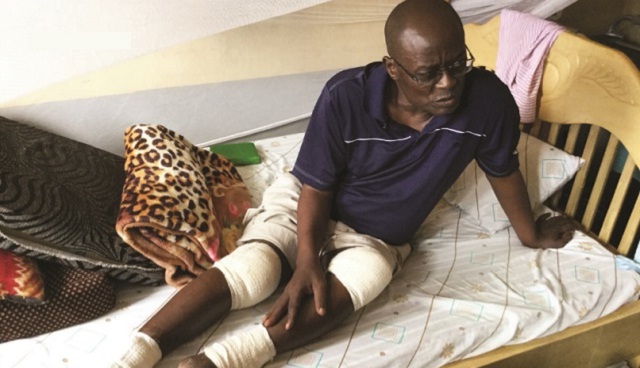
We want action, say critics
Kampala, Uganda | RONALD MUSOKE | Human rights advocates and opposition politicians have reacted to President Yoweri Museveni’s recent letter on torture with frustration, labeling it as “merely cosmetic.”
President Museveni’s Oct. 23 letter titled, “Guidelines on managing rioters, terrorists, criminals and looters and methods of arresting and handling suspects,” was addressed to the Chief of Defence Forces, the Inspector General of Police,and other heads of Uganda’s security organs but made public in newspapers.
It was Museveni’s second letter on torture by security agents in 18 months— an indicator of how the crime has increased. It followed public anger over the recent violent arrest in Kampala of a man later identified as Yusuf Kawooya; a member of the Uganda Young Democrats (UYD), the youth wing of the opposition Democratic Party (DP).
According to critics, Museveni appears to have picked the worst case of torture to comment on since the DP politician was brutalised in broad daylight and no case has been brought against him in any court.
Kawooya’s case came into the spotlight on Oct.18 when a video published by local broadcaster, Record TV and widely shared online, showed five gun-wielding men pin a struggling man face down on the tarmac of a city street. The men in civilian attire piled on top of him and grabbed him in the neck, waist, and legs. Some of the attackers had guns at the ready.
A thick crowd watched in shock from a safe distance as the men dragged him to a kneeling position and attacked him with gun butts; hitting mainly the shoulder, waist, and rib-cage area. They continued battering the wailing man as they dragged him to a waiting van that looks like a normal city matatu taxi but clearly was not and was later outed to bear fake number plates.
Security agencies initially denied involvement but on Oct. 19 confirmed Kawooya had been detained at the notorious police Special Investigations Division headquarters at Kireka on the eastern fringes of Kampala city.
In his letter, Museveni refers to Kawooya’s case directly but appears double-faced about torture. He does not condemn torture or order arrest of offenders. He merely says that “brutalizing suspects is not necessary.”
“It is unfair, unnecessary and gives a bad image to the country,” Museveni’s letter reads in part, “You do not have to beat him or maim him.”
In an earlier public memo written on May 15, 2017, addressed to the heads of Uganda’s security organs, Museveni had said using torture in order to extract confessions was wrong because it interferes with the fight against crime.
But many people have said in the latest letter, Museveni appears to endorse torture, albeit under specific circumstances. He says it is sometimes alright to box a suspect “very hard” and gives the example of Kawooya. Museveni says he was told Kawooya allegedly got the rough treatment because he had bitten one of the arresting officers.
“That is very serious because some of the criminals have got infectious diseases,” Museveni said adding that the appropriate response would have been to “box him hard so that he stops biting our officer.”
“That would be self-defence which is very legitimate,” he said.
Issues around Kawooya’s case remain unclear as he has not been charged in any court. But in a recent similar case, when security agents tortured a photojournalist; James Akena, the President said they told him they suspected the innocent journalist to be a thief.
In his guidelines Museveni appears to ignore the fate of such innocents. Instead he says security agents “have no choice but to shoot” suspects who attempt to run away. He specifies terrorists or murderers but it is unclear how the security agents can confirm that one is a terrorist or murderer without a conviction in a court of law.
Museveni’s endorsement of a shoot to kill orientation could see innocent but scared people shot dead as they run away from security agents. But Museveni defends it.
“If the police do not disable you or kill you,” he writes, “they may never get another chance to catch you to answer for your crimes.” In the meantime, he adds, such a criminal may commit more crimes.
But Mohammed Ndifuna, the Chief Executive Officer of the Human Rights Network Uganda (HURINET-U) disagrees.
“A suspect remains a suspect until proven guilty in a competent court of law,” he told The Independent in an interview.
Rights activists react
Outspoken shadow minister for Internal Affairs, Muwanga Kivumbi, told The Independent that Museveni’s latest letter “is nothing but spin or a PR stunt.”
“This letter is a gimmick which undermines the intelligence of Ugandan citizens,” he told The Independent on Oct. 29.
Kivumbi adds: “We are a country governed by the rule of law and we have a constitution that the president must speak to. Torture is illegal in this country but he falls short of pronouncing it the way it is.
 The Independent Uganda: You get the Truth we Pay the Price
The Independent Uganda: You get the Truth we Pay the Price



